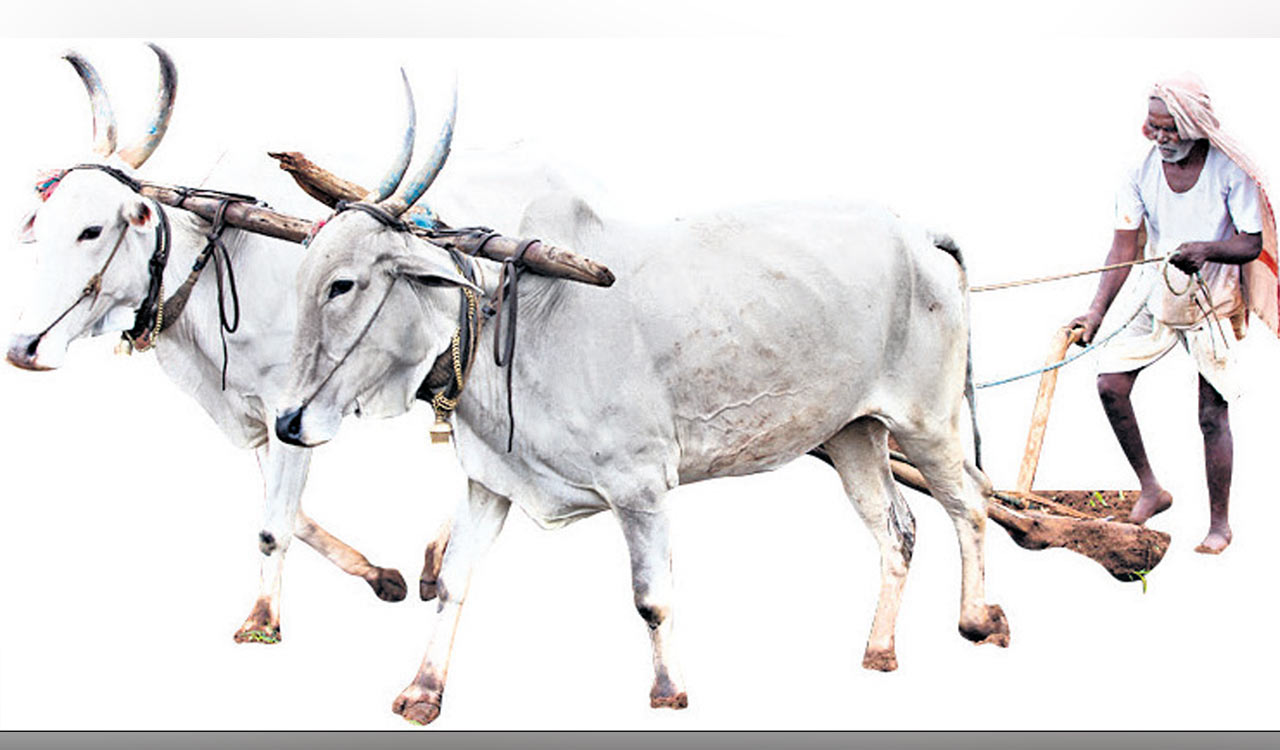Farm laws and price assurance
Enhanced market choice does not assure farmers guaranteed price for there is no accountability on the agreeing parties

It’s been over three months since the farmers’ began their protest demanding the repeal of the three farm laws, namely Farmers (Empowerment and Protection) Agreement on Price Assurance and Farm Services Act (FPAFSA), 2020, Farmers’ Produce Trade and Commerce (Promotion and Facilitation) Act (FPTCA), 2020, and Essential Commodities (Amendment) Act (ECA), 2020. Among these, the FPAFSA is critical as it sets out to provide “price assurance” to farmers leading to an increase in their net income. The provision looks promising and theoretically, no one would like to disagree with this proposition. However, the details lie in the implications of the provisions and their implementation on the ground.
Against this backdrop, it is necessary to explore some of the issues of the political economy to understand the nuances and subtleties of price assurance that was included in the FPAFSA. Some of the provisions of the FPAFSA raise certain pertinent questions, ie, to what extent these assure better prices for farmers? Does making provisions for selling outside the APMCs/mandis automatically ensure the best price? Is this possible in the absence of an agricultural price policy?
Understanding the link between price policy and agricultural development is essential to capture the subtleties underlying these legislations. The incentive of enhanced market choice for selling the crop/produce does not automatically assure farmers a guaranteed price because the FPAFSA does not fix accountability on the agreeing parties.
Discretion Galore
There is a lot of discretion given to the sponsors or buyers in the FPAFSA, especially Section 6, which deals with selling or purchasing of produce. This has the risk of enhancing the income inequality thereby pushing the small and marginal farmer into a chakravyuh because after the price fixation in the agreement, the farmer is forced to sell her produce at the agreed rate even if the market price becomes higher than the agreed price of the particular produce.
Here, one would argue that the buyers or sponsors also face the same risk in case of a price decline of a particular produce after the contract. This is a fact; however, the buyer/sponsor is placed in a better economic position in comparison with the marginal, small and medium farmer. Hence, the risk is less for the buyer and sponsor.
The lack of provision for a clear, robust and transparent regulatory framework even for the newly coming market players deprives farmers, especially marginal and smaller, of the benefits accredited through the expansion of available market choices in selling their farm produce outside the registered APMC or any other state-regulated mandis. A regulatory governance is crucial to prevent the unfair distribution of the market benefits accredited to farmers that are aimed in these agriculture reform measures.
Poor Infra
In terms of structure, yes, now there will be a large number of buyers for the farm produce with the possible attraction of more investments in agriculture. This is fine. But the problem is that the legislations have not taken into consideration the institutional factors that are critical for the success of these new structural entities (be it large farmers, private companies or even MNCs). Private players, buyers and sponsors to put it simply, need certain basic infrastructure and other logistical support to participate in the trade. Sadly, infrastructure and logistical arrangements are in poor condition, especially in rural areas.
Owing to low storage capacities and capabilities, farmers are forced to sell their produce to local moneylenders soon after the harvest and yield. Most of the times, this transaction occurs based on exchange value. Bringing in a suitable agricultural credit policy is the need of the hour. This has to come from the respective State governments if they are genuinely looking for preserving farmers’ interests.
The vicious cycle of indebtedness and its implications on tweaking farmers’ liberty to sell their produce in the open market other than the APMC or registered mandis is the heart of the problem. The success of the farm laws depends on breaking this debt cycle so as to truly liberate farmers from the clutches of credit givers to facilitate the market benefits.
Ills of Neoliberal Model
The state’s withdrawal from the regulation of market forces defies the logic of economic empowerment and the Directive Principles of State Policy, in particular Article 39 (b) and (c) of the Constitution. In pursuit of neo-liberal economic governance with its capitalistic mode of development, it is highly doubtful and impractical that these steps are going to benefit farmers, though they give the freedom of choice for selling the farm produce. The agrarian crisis has deepened ever since the adoption of the neoliberal model of governance and development.
Farmers’ protests signify the acute rural distress that has seen unprecedented farmers’ suicides. This reflects the continued neglect of agriculture by the successive governments of all the mainstream political parties in the post Independent period, specifically in the post-economic reform period.
The changing role of the state in the neoliberal era from regulator to facilitator of governance has widened the unequal access of land and the appropriation of land. Even the modest socialist agenda of land reforms has taken a back seat perpetuating the existing socio-economic inequalities among the farming community, enforcing large migration from rural to nearby towns and urban areas, especially by marginal, small and semi-medium farmers.
In the context of ongoing protests, the question to be asked is, do the political parties draw the right inferences from the protests to rechannelise their focus on to agriculture? The government’s objective of doubling farmers’ income can become reality only if it sincerely attempts to address some of the above-mentioned structural and institutional issues. Without such corrective measures, the farm laws may end up deepening the agrarian crisis and widening income inequities.

(The author is PhD Fellow, Centre for Political Institutions, Governance and Development of Institute for Social and Economic Change [ISEC], Bengaluru. Views are personal)
Now you can get handpicked stories from Telangana Today on Telegram everyday. Click the link to subscribe.
Click to follow Telangana Today Facebook page and Twitter .
Related News
-
TSWREIS alumni shine as India wins gold at Indo-Indonesia Ball Badminton Series
14 mins ago -
Hockey India President Dilip Tirkey inspects Gachibowli facilities ahead of World Cup qualifiers
20 mins ago -
BRS approaches Human Rights Commission on ‘Bulldozer Raj’ against Dalits in Warangal
36 mins ago -
King Charles III’s brother Andrew arrested by UK police over Epstein-linked allegation
39 mins ago -
AI biggest platform shift of our lifetimes: Sundar Pichai
39 mins ago -
TGSRTC to install luggage racks in 150 Hyderabad city buses
49 mins ago -
Osmania University hosts AIU Central Zone Vice Chancellors’ Meet
59 mins ago -
SIO urges Rs 5,000 crore minority education allocation in Telangana budget
1 hour ago




